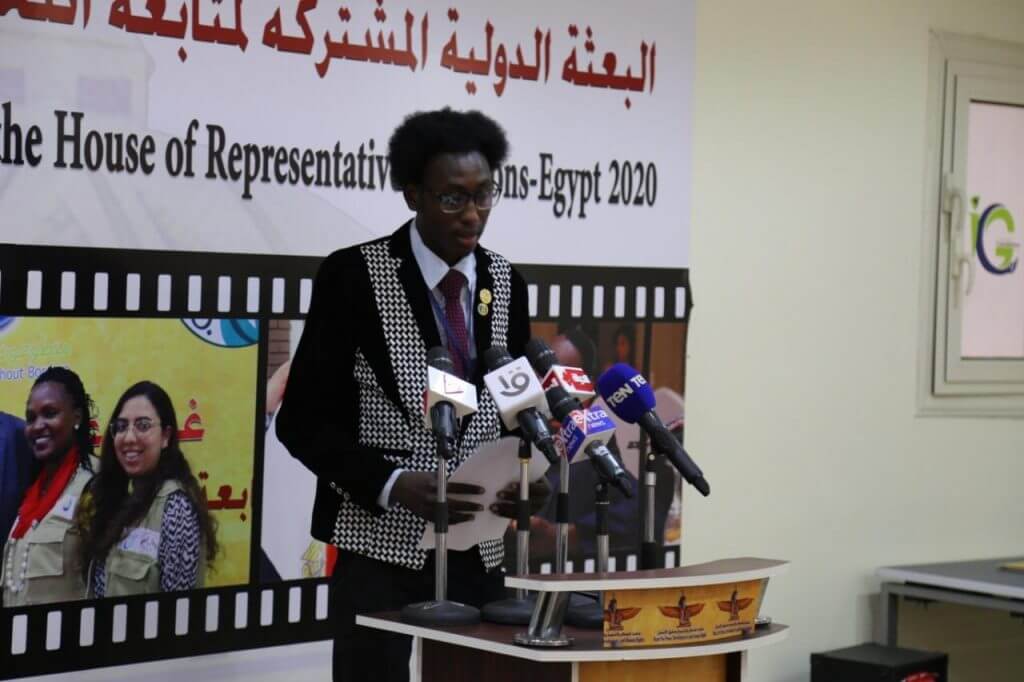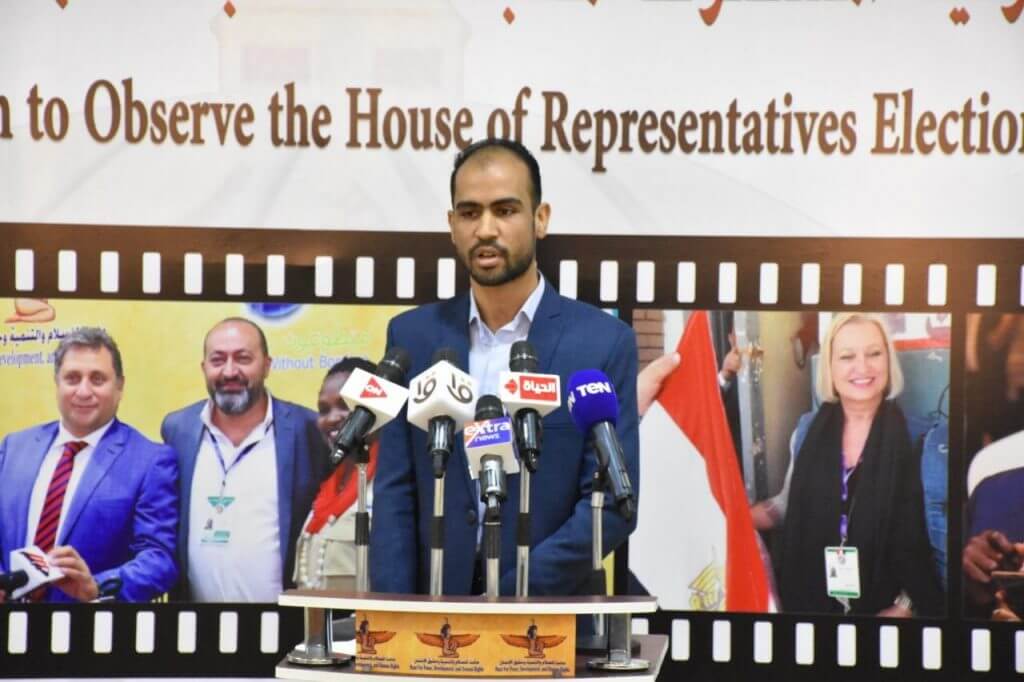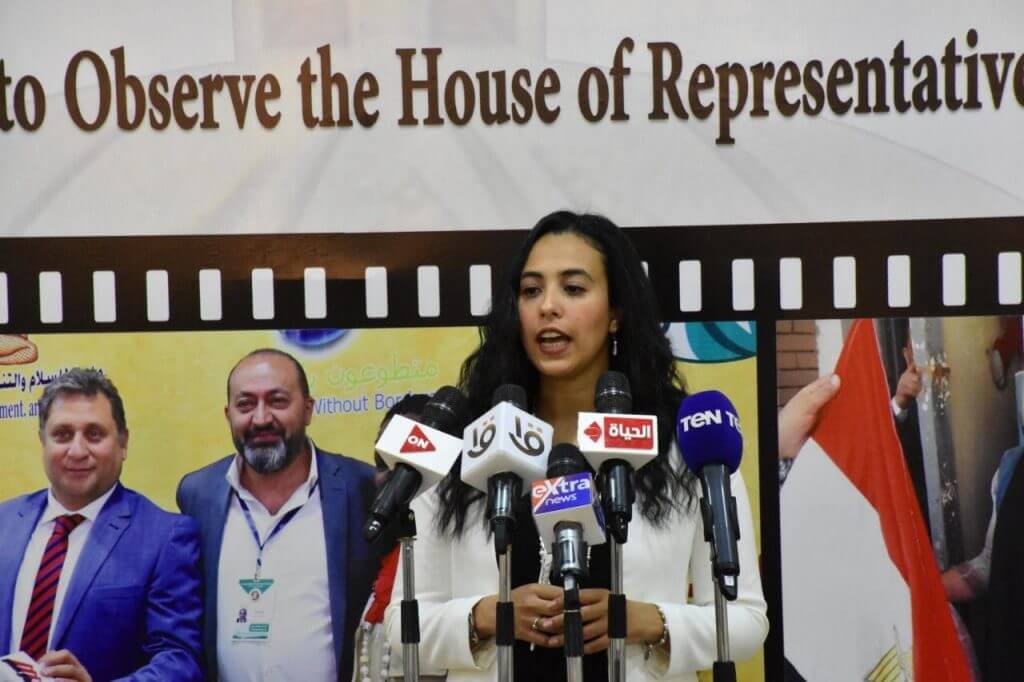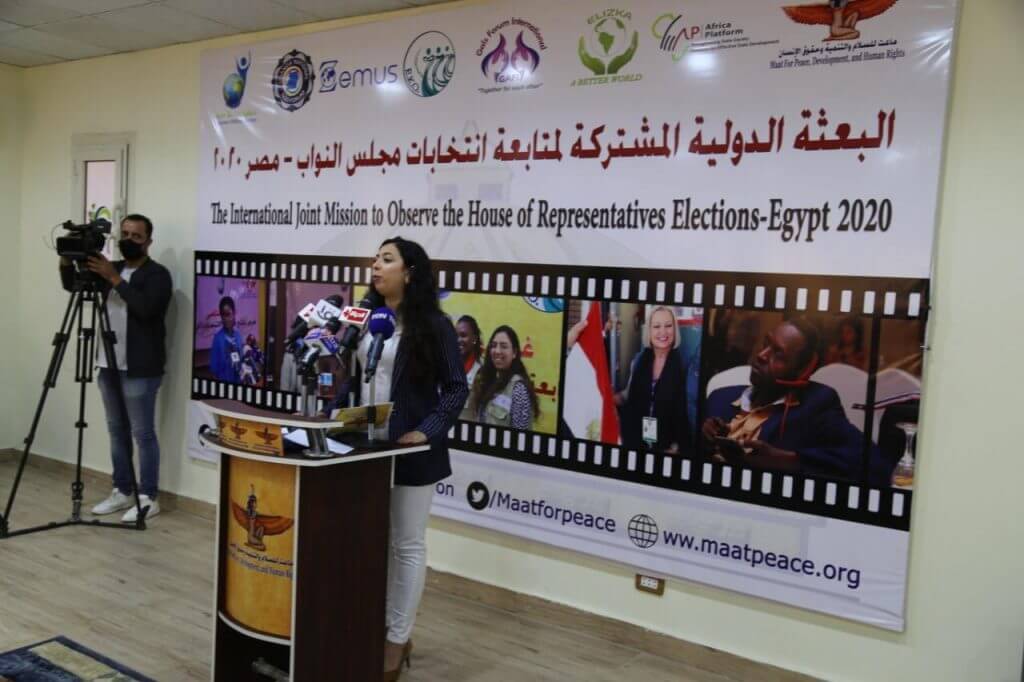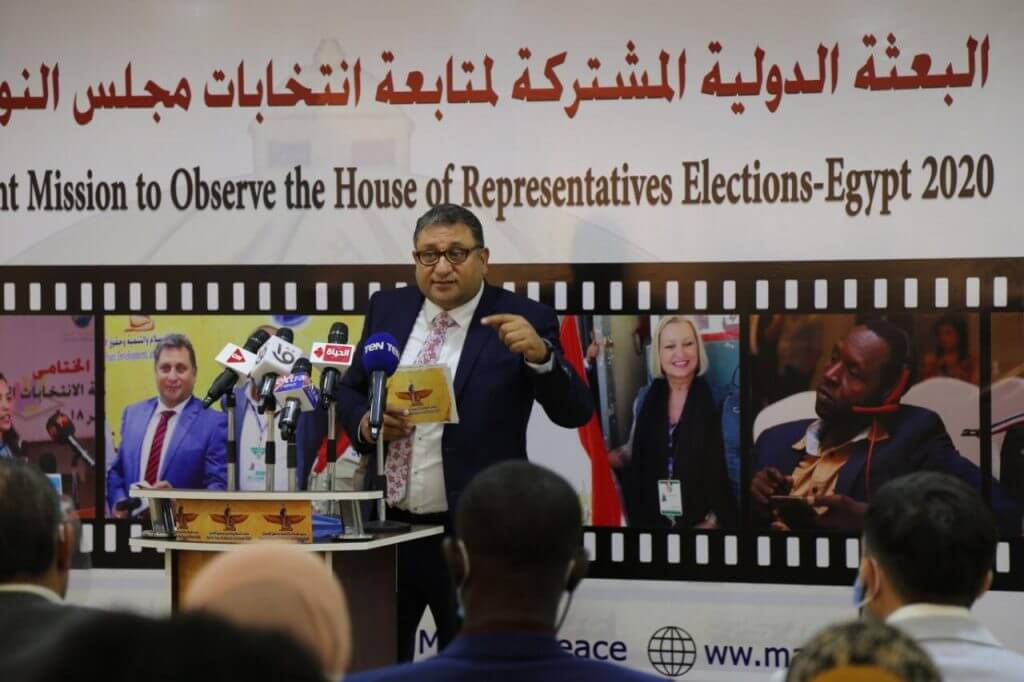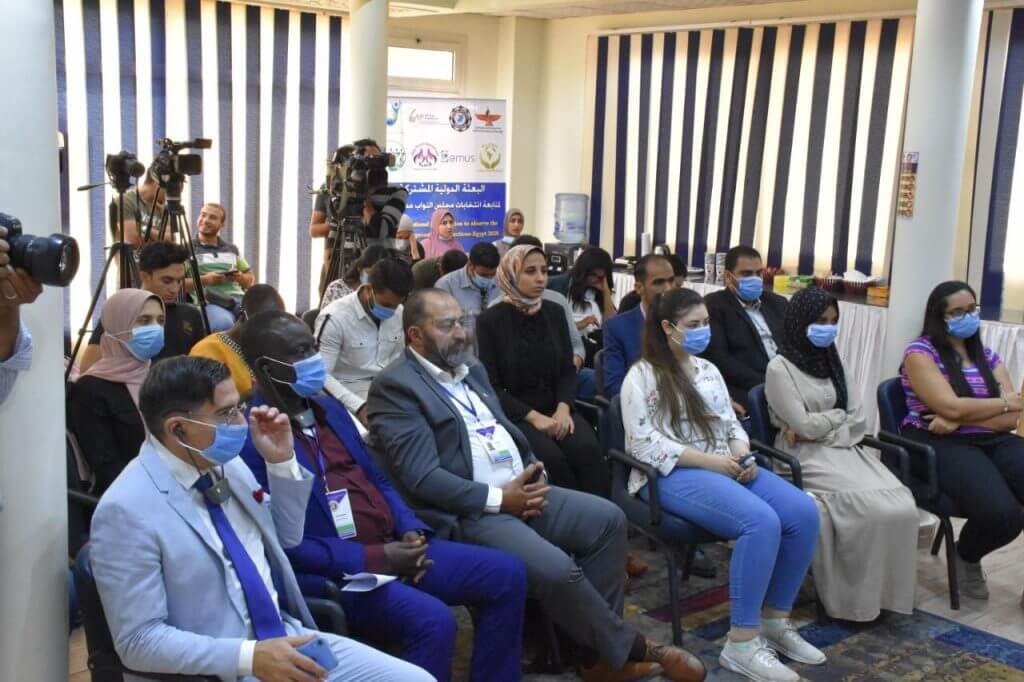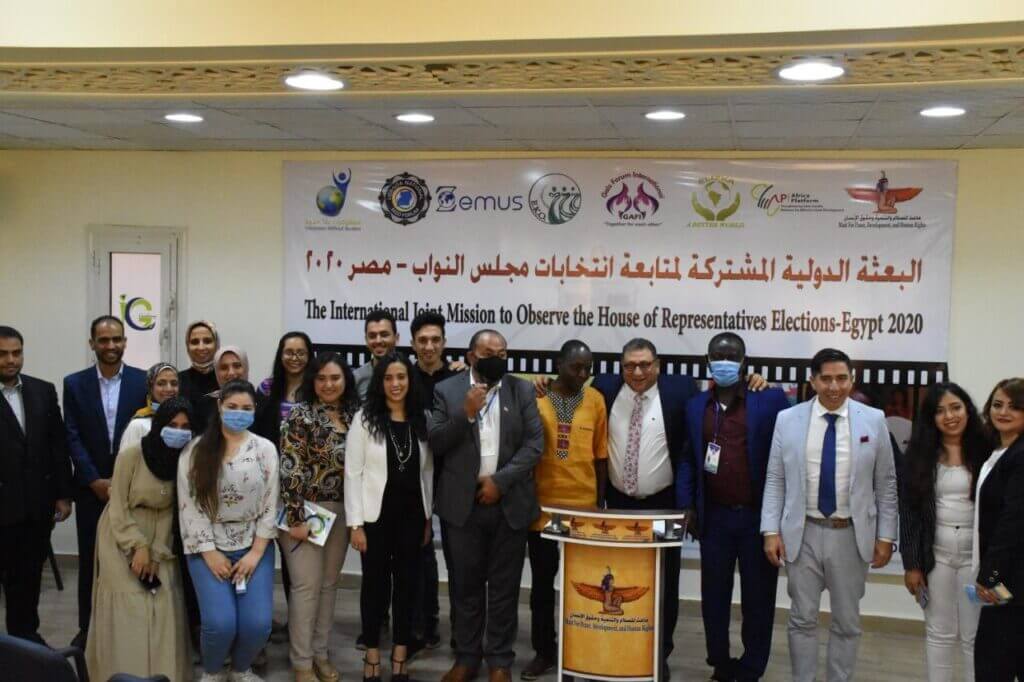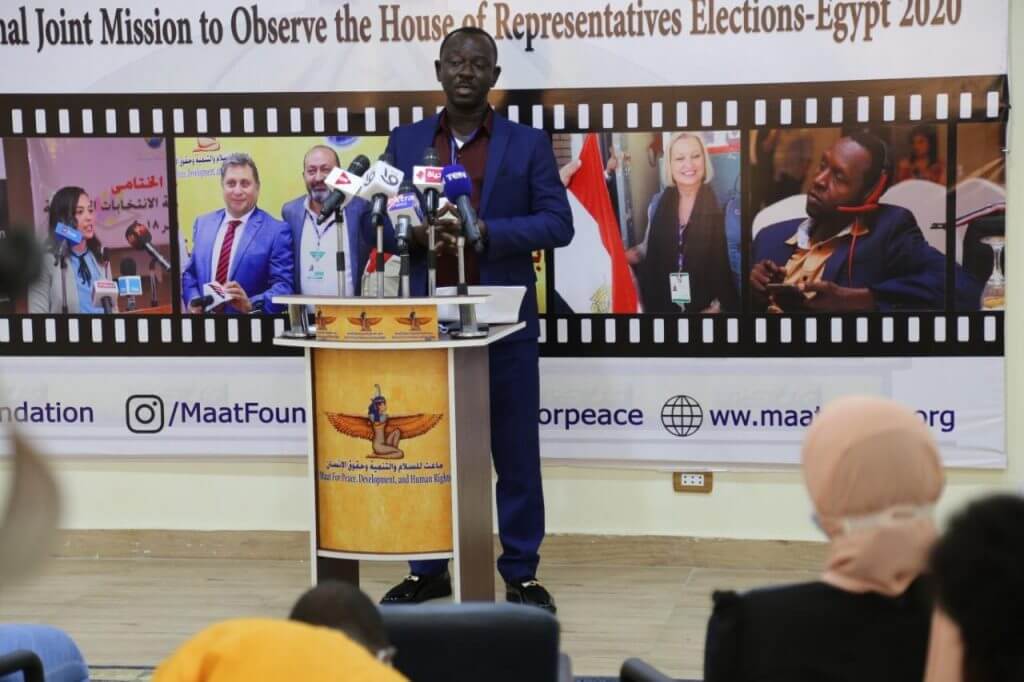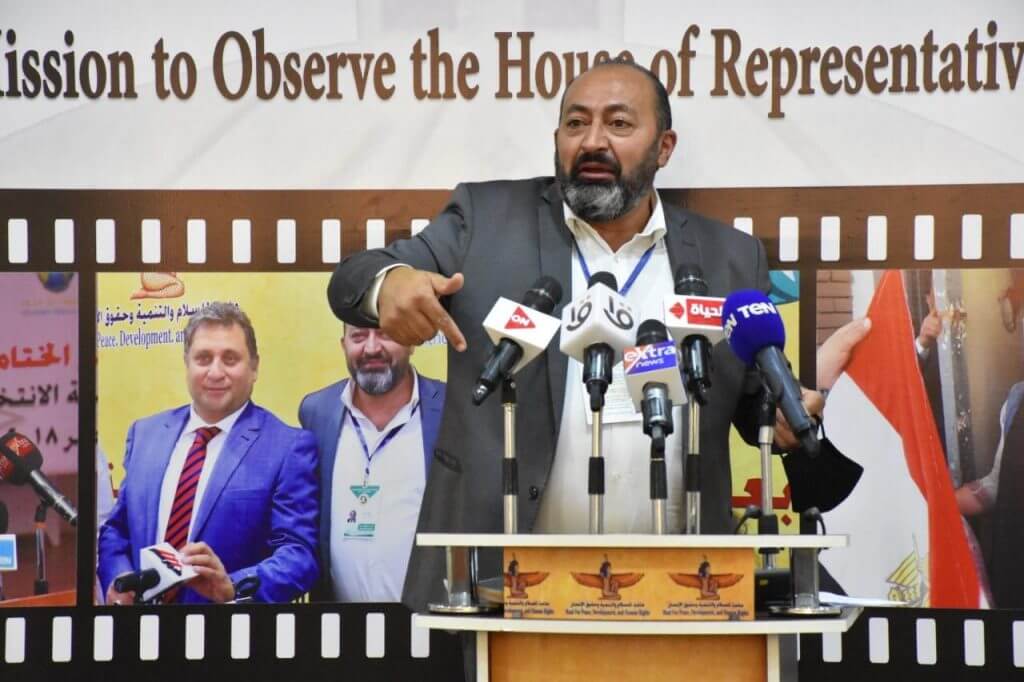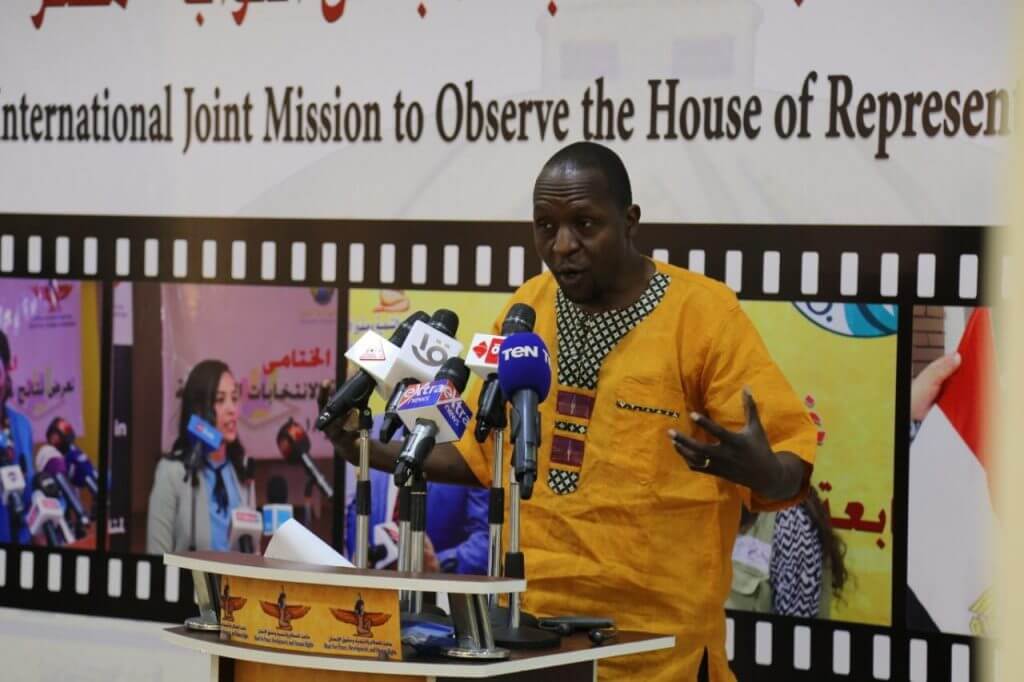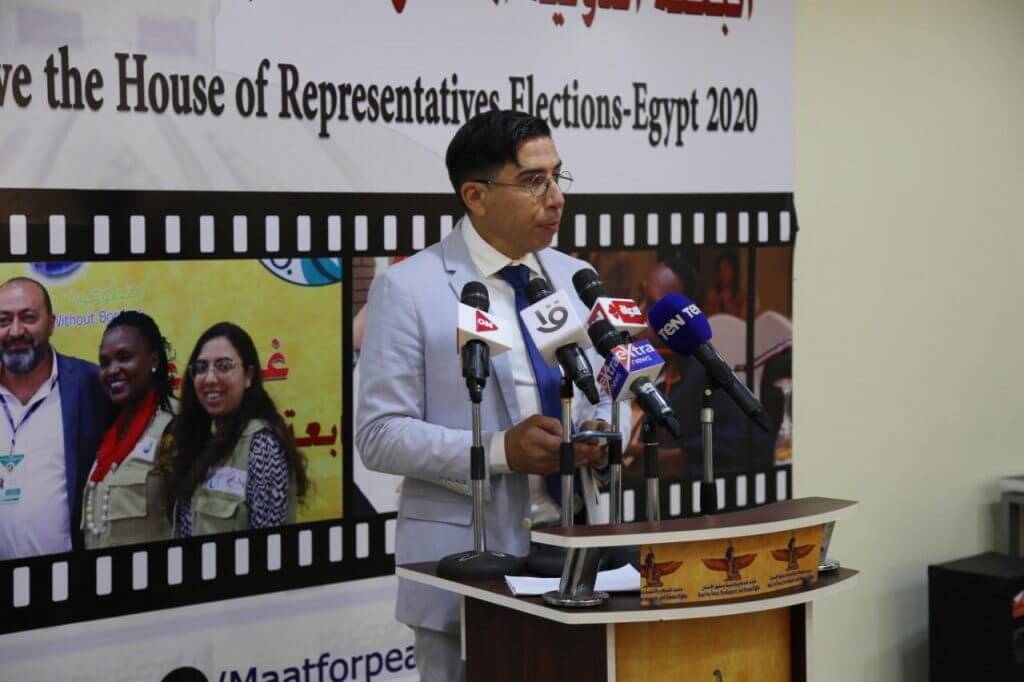The Preliminary Statement
The House of Representatives elections in Egypt, for 2020, are held in two phases. The first phase includes 14 Egyptian governorates, which are “Giza, Fayoum, Beni Suef, Minya, Assiut, New Valley, Sohag, Qena, Luxor, Aswan, the Red Sea, Alexandria, Beheira, and Matrouh.”. In the first phase, the elections were held on Saturday and Sunday 24-25 October 2020, under full judicial supervision.
The House of Representatives consists of 568 elected deputies, 284 deputies are elected by the individual system, and 284 deputies are elected under the closed party list system, while the President of the Republic has the right to appoint no more than 5% of its total members. Thus, the total number of the next House of Representatives will be 596 members.
The number of citizens who have the right to vote in the first phase of the House of Representatives elections reached 33 million and 472 thousand and 778 (male and female) voters, out of 63 million citizens included in the voter database and have the right to vote nationwide. These voters will vote in 10240 sub-committees to elect 284 deputies from the individual systems and another 284 from the party lists, in the governorates of the first phase.
The Joint International Mission to Observe the House of Representatives Elections-Egypt 2020, consists of 7 non-governmental organizations from different countries in Europe, Africa and the Middle East: Volunteers Without Borders (Lebanon), Entrepreneurship and social economy group (EKO) (Greece), Zemus association (France), Elizka Relief Foundation (Ghana), Gals International Forum (Uganda), the African Platform Organization (Kenya), The Uganda National NGO forum, as well as the main national partner represented by Maat for Peace, Development and Human Rights.
The mission has observed the elections based on an observation form with reference to the International standards for free and fair elections and Egyptian Legal regulations organizing the electoral process, the mission mandate was to observe the following items of the electoral process:
- Safety and security of voters
- 2.Freedom and ease of voting
- Conduct of security officers and electoral officials
- Intimidation in of voters
- Conduct of security and candidates in and around the polling station.
- 6.Adherence to electoral laws
- Adherence to covid 19 protection
The joint international mission has observed the whole electoral process including the stage of the nomination of parties and candidates; the stage of electoral campaigning. As well, the mission continues to observe the polling process in 6 governorates of the first phase: Giza, Alexandria, Beheira, Beni Suef, Fayoum, and Minya.
The mission formed a central operation room to observe the elections, in coordination with a number of observers and coordinators from two other Egyptian organizations, namely, the “Egypt Peace Foundation for Development and Human Rights, and the National Center for Human Rights”.
The total number of sub-committees that were visited by the mission personnel was about 1086 sub-committees in 6 governorates, out of a total of 5926 committees, which is 18% of the total sub-committees at the level of the six governorates.
The observers’ initial observations are represented in the following points:
- We monitored the cooperation of the heads and secretaries of committees with the voters and observers, as well, their commitment to the laws and regulation of the electoral process.
- The mission received a number of complaints related to manipulation of voters and breaking the electoral silence, especially in the committees of the seventh constituency, which is located in the Omraniya district, as well as before some committees in the first constituency located in Giza center, and the fifth constituency, which is located in Atfih
- We detected a number of violations by some of independent candidates’ supporters and those affiliated with parties alike, represented in the election campaigning in the vicinity of the polling stations, which is considered a break of the electoral silence.
- We observed the presence of cars and loudspeakers roaming the Giza governorate to play songs of popular and local singers to support a candidate.
- We have observed cases of mass transport in private cars to direct voters.
- We observed also the complaints lodged against the candidates that are currently being examined by the National Election Authority
- We observed the cooperation of the security forces for organizing the entry of citizens into the electoral committees.
- As well, we observed the cooperation of the security forces with the observers, with the exception of some constituencies in which the entry of observers was delayed until confirming their identity or obstructing their entry. In these cases, we had communicated with National Elections Authority to overcome the challenges
- We observed the variation in the extent of citizens’ commitment to the precautionary measures to confront Coronavirus.
- We observed the presence of medical services for the “100 Million Health” initiative in front of most of the polling stations visited.
- We observed the extensive media coverage of the conduct of the polling processes in the various governorates.
- The facilitation of voting for people with special needs and the elderly were also observed.
- We observed the ease with which voters could reach the polling stations where their names are registered to vote.
- We observed the availability of all tools related to the elections (transparent boxes – locks – ballot papers – electoral tables … etc.)
- We observed the absence of candidate representatives in most committees.
Based on previous observations, the international joint mission to observe the House of Representatives elections recommends the following:
A- to Electoral officials:
- Intensification of the National Elections Authority’s efforts to train personnel involved in the electoral process.
- Intensifying cooperation between civil society, political parties and the National Elections Authority to raise voter awareness.
- We recommend intensifying efforts to use more technology in electoral processes.
B. B- to candidates:
- We urge the candidates and parties to adhere to the election rules and laws more.
- We recommend improving the performance of electoral campaign workers, especially with regard to the rules of election campaigning.
C- to citizens
- We call on citizens to adhere to precautionary measures more during the second phase.
